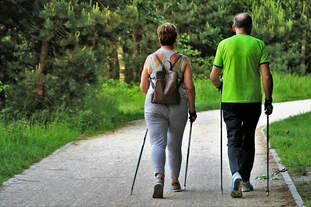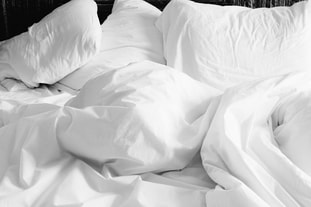 We sometimes hear people saying that they are “too old” to start exercising. After all, some believe it’s common knowledge that we “can’t build muscle” as easily as we get older. While there may be some truth to that notion, it is far from an excuse to not partake in regular exercise. Let’s dive in deeper and explain:
As we near our 70s and 80s, it generally becomes harder to accomplish day to day tasks. Taking on an exercise program focused on functional tasks can help maintain or improve our independence through our everyday life. Furthermore, there are even more benefits to engaging in regular exercise as we age, such as:
One barrier to exercise is that we might get the wrong idea that exercise needs to be something very exhaustive when in fact, you might already be doing activities that count towards your weekly exercise goals. These might include walking, gardening, mowing the lawn, or shovelling snow. More intense exercise can include fast or Nordic walking and water aerobics, among other options. In the end, the best exercise is one that you enjoy doing and motivates you to move. With that in mind, we hope see you exercising well into your retirement. If you have questions or would like to improve your ability to accomplish day to day activities, give us a call and book an appointment with one of our physiotherapists!
1 Comment
 Many people have suffered from knee pain at least once in their life, while some suffer more frequently from knee osteoarthritis (OA). In an attempt to prevent faster knee degeneration, many people mistakenly avoid high impact activities for their knees - most frequently running. Interestingly, however, running may in fact have quite the opposite effect on our knees. The repeated impact on our knees while running has actually been found to be beneficial! Repeated stress applied to the bones and cartilage in the knee (such as with running) creates tiny micro-tears, to which our body naturally responds by strengthening and solidifying our tissues. Research has demonstrated that recreational running decreases the risk of developing osteoarthritis of the knees and hips (1). However, the jury is still out on the effects of running for those already afflicted by osteoarthritis, . While it was previously thought that running may worsen symptoms, a recent research study suggests the opposite (2). While this may be good news for arthritis-afflicted runners, further research is needed. So with this wave of beautiful weather approaching, we hope that you’ll be encouraged to take up running this year! If you ran the previous years, take a minute to read our post about getting back in the swing of things this summer without injuring yourself. References:
1. The Association of Recreational and Competitive Running With Hip and Knee Osteoarthritis: A Systematic Review and Meta-analysis. Eduard Alentorn-Geli, Kristian Samuelsson, Volker Musahl, Cynthia L. Green, Mohit Bhandari, and Jón Karlsson. Journal of Orthopaedic & Sports Physical Therapy (2017) 47:6, 373-3902. 2. Running does not increase symptoms or structural progression in people with knee osteoarthritis: data from the osteoarthritis initiative. Lo, G.H., Musa, S.M., Driban, J.B. et al. Clin Rheumatol (2018) 37: 2497. https://doi.org/10.1007/s10067-018-4121-3  March 15th is World Sleep Day! Who doesn’t like to sleep in on the weekend? Or wish they had an extra hour or two to sleep in Monday morning? Chances are, you’re more than familiar with those feelings, as most of us are. This is why it’s so important to discuss the impact of proper sleeping habits on our general health. As health professionals, physiotherapists constantly promote better sleep habits to our clients, as it plays an incredibly important role in injury recovery and pain levels. Andrew Koppejan, a registered physiotherapist in Alberta, even wrote a book about the impacts of sleep and how to integrate it in our practice. A few points from his book that may surprise some:
Poor sleep negatively impacts the symptoms of inflammatory diseases (such as rheumatoid arthritis). With those in mind, why not take a moment to think about our own sleeping habits? There is no better time to tackle this than today on World Sleep Day! Here are a few tips to get you started. |
|
We are proud to be a bilingual, inclusive clinic.
|
Hours of Operation
Mon-Thur: 7:30am - 7:30pm Fri: 7:30am - 6:00pm Sat/Sun: Closed 1185 Bank Street
Ottawa ON K1S 3X7 Expert care in the Glebe & Ottawa South. Free parking available! |
|


 RSS Feed
RSS Feed



